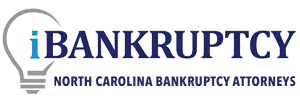Chapter 13 Bankruptcy Will Stop Foreclosure Of Your Home
You may be facing a situation where because of your hardship, you have become unable to keep your mortgage payments current. The mortgage company has decided not to work with you any further and handed the collection process over to an attorney. The attorney has one method of collecting on a delinquent mortgage… foreclosure.
Chapter 13 bankruptcy can be filed to stop a foreclosure. Through your Chapter 13 bankruptcy you will pay your normal monthly mortgage payments and the amount you are behind on your mortgage (arrears). At the conclusion of your Chapter 13, you will have made all of your monthly mortgage payments since the inception through the end of your bankruptcy. You will also have paid all of the arrears making your mortgage current. After your Chapter 13, you will commence making your monthly mortgage payments directly to the mortgage company until your mortgage is paid in full.
Timing Of Filing A Chapter 13 To Stop Foreclosure. You must file your Chapter 13 anytime prior to the conclusion of the 10 Day Upset Period (defined below). To say it another way: you must file your Chapter 13 within 10 days following the foreclosure sale date to save your house from being foreclosed.
Now that you know that Chapter 13 will stop the foreclosure, it will be helpful to understand the foreclosure process.
FORECLOSURE PROCESS
(1) Preforeclosure Notice (45 Day Letter). You will be sent a letter from your mortgage company at least 45 days prior to the filing of the foreclosure proceeding. This letter will detail the amount you are behind, the additional fees required to bring your mortgage current, and other information required by the NC Statutes.
(2) Foreclosure Proceeding. The mortgage company will institute the foreclosure by filing a Special Proceeding in the county in which the land is located (i.e. for land located in Greensboro, NC the Special Proceeding will be filed with the Guilford Courthouse).
(3) Notice Of Default (30 Day Letter). You will be sent another letter from the mortgage company within 30 days of the hearing date. This letter will detail the monies the mortgage company claims it is owed (including principal, interest, and other fees).
(4) Notice Of Hearing. The mortgage company must provide you with notice that a hearing date has been scheduled regarding the foreclosure of your home. This notice must be mailed to you at least 10 days prior to the hearing date OR posted in a conspicuous location at your home at least 20 days prior to the hearing date.
(5) Hearing. At this hearing, the Clerk of Superior Court determines if the mortgage is a valid and enforceable debt and whether or not the mortgage company has met all of the requirements to proceed with the foreclosure sale. The Clerk can continue this hearing up to 60 days from the original hearing date if (1) the property is your residence and (2) there is a reasonable likelihood of the delinquency being resolved without foreclosure.
(6) Notice Of Sale Date. After receiving approval by the Clerk, the mortgage company will send you a notice of the foreclosure sale date. This notice must be sent to you at least 20 days prior to the sale date, posted in a public place (at the courthouse), and advertised in the local newspaper.
(7) Foreclosure Sale. On the scheduled date, the mortgage company will auction the property for sale at the courthouse. Anybody who desires can bid on the property. If no one bids, then the mortgage company itself will purchase the property.
(8) 10 Day Upset Period. Following the foreclosure sale, there is a 10 day upset period established where an individual can outbid the previous bidder by making a higher bid on the property (this is similar to a silent auction). Each new bid starts a new 10 day upset period. This process will continue until the bids stop and 10 days pass following the last bid.
